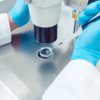Fritextsökning
Artiklar per år
Innehållstyper
-

Rapid developments in AI – “All stakeholders are struggling to understand it”
Artificial intelligence is being discussed more and more, and developments in the field are moving rapidly. As the Swedish Medical Products Agency testifies, keeping up with developments is not easy.
-

Olika resultat för Sedanas inhalerade sedering av barn i studie: "Föranleder försiktighet i tolkningen"
En första analys av en fas III-studie med Sedana Medicals inhalationssedering påvisar "non-inferiority" – eller klinisk likvärdighet – för hela analyspopulationen, men inte i per protocol-analysen.
-

The first Lyme disease vaccine faces a delay
Pfizer and Valneva’s Lyme disease vaccine, which could be the first of its kind, is facing delays of about a year. The reason is problems at trial sites in the United States, which have forced the companies to drop half of the participants in an ongoing Phase III study.
-

Uncertainty about the government’s life science work
The government’s national coordinator for life science, Jenni Nordborg, left her position almost four months ago. No one has yet succeeded her, and now questions are being raised both about the government’s plans for the office and the Swedish life science strategy.
-

Frågetecken om regeringens life science-arbete
För snart fyra månader sedan lämnade regeringens nationella samordnare för life science Jenni Nordborg sitt uppdrag. Ännu har ingen efterträtt henne och nu väcks frågor både om hur regeringen ser på kontoret och på den svenska life science-strategin.
-

New diagnostic rules raise concerns
In a panel discussion, several voices from academia and the industry expressed concerns about the transition to the new regulatory framework for in-vitro diagnostics (IVDR). They argue that it may create significant differences between regions, and patients may be affected.
-

Meeting with focus on South Korea and Japan’s life sciences
Large, complex and exciting – this is how Britta Stenson, Business Sweden, describes the life science markets of Japan and South Korea, which took centre stage during a webcast seminar.
-

Swelife: Nu krävs gemensamma krafttag för svensk life science
DEBATT: Efter årsskiftet har life science-frågorna hamnat i skymundan för andra frågor på den politiska agendan. Det är viktigt att vi inte tappar den framdrift som hela sektorn fick med en nationell life science-samordnare, ett life science-kontor och en nationell life science-strategi. Handen på hjärtat, vem äger life science-frågan?
-

Major advances in IVF labs in the last few decades
Since the introduction of in vitro fertilisation several decades ago, many developments have been made in the field, and the main part of that development has taken place in the lab.
-

Sydkoreas och Japans life science i fokus på möte
Stora, komplexa och spännande. Så beskriver Britta Stenson, Business Sweden, Japans och Sydkoreas marknader för life science, som stod i centrum under ett webbsänt seminarium.
-

Bör vi vara oroliga att AI tar över våra jobb?
Ingen kan ha undgått att det pratas om AI, artificiell intelligens, överallt. Men bör vi vara oroliga för våra jobb när AI gör entré?
-

Karolinska sjätte bästa sjukhus i världen enligt ny rankning
Den amerikanska tidskriften Newsweek rankar varje år världens bästa sjukhus. 2023 finns Karolinska universitetssjukhuset på sjätte plats.
-

“An entire industry is about to be wiped out”
According to Jennie Ekbeck, CEO of Umeå Biotech Incubators, Sweden risks not having any small diagnostic companies left in five years.
-

Editorial: ”AI that both impresses and frightens”
”In the past, I've rarely been particularly impressed by something that was produced by AI. But this is something completely different”, Samuel Lagercrantz writes in an editorial.
-

Hello Jenni Nordborg!
Life Science Sweden would like to know more about Jenni Nordborg and asks her about her new job, why she became a chemical engineer and who her role model is.
-

A surprising discovery about the immune system in cases of cancer
Professor Göran Jönsson is trying to understand why some patients benefit from immunotherapies while others don’t. A couple of years ago, he made a surprising discovery about the function of the immune system.
-

Column: ”Authentic leadership and clear mandates pave the way for more female CEOs”
”I believe that the aspect of having clear mandates and titles on the one hand and women progressing into top positions must be explored further”, Helena Strigård writes in a column.
-

Stort intresse för företag bakom nytt potensläkemedel – nyemission övertecknad
Uppsalabolaget Dicot har genomfört en övertecknad nyemission och fått in 54,8 miljoner kronor till den fortsatta utvecklingen av ett nytt potensläkemedel.
-

Ny typ av strålterapi lockar investerare
Svenska Akiram Therapeutics, som utvecklar strålbehandling mot cancer som idag är obotlig, har tagit in 68 miljoner kronor i en aktieemission ledd av investerarnätverket Sciety.
-

Monica Shaw tar över på Oncopeptides
Cancerforskningsbolaget Oncopeptides har utsett Monica Shaw till ny vd. Hon ersätter Jakob Lindberg som återgår till rollen som forskningschef.
-

ALS – When the body has given up, but the brain persists
The nerve disease ALS gradually deprives the patient of control over the muscles and, eventually, also of speech. The eyes continue to function, though, and with the help of, among other things, a Swedish-developed invention, communication with the outside world can continue. “It’s their window to the world,” says ALS researcher Caroline Ingre.
-

Medivir i möte med FDA: "Positiv återkoppling"
Forskningsbolaget Medivir har genomfört ett så kallat pre-IND-möte med den amerikanska läkemedelsmyndigheten FDA.
-

“Photon counting in computed tomography is the holy grail”
Erik Fredenberg, a researcher in physics at KTH and GE, is working to implement photon-counting CT in clinics. To shorten lead times and reduce the radiation dose in patients, he is setting out to develop a framework for virtual clinical trials for the technology.
-

The stomach medication that became the biggest blockbuster of the 1990s
The omeprazole molecule was synthesised as early as 1979, but it took many years before the then Astra had an approved pharmaceutical. Once this happened, a tablet was available that was soon to help millions of people worldwide and break all sales records.